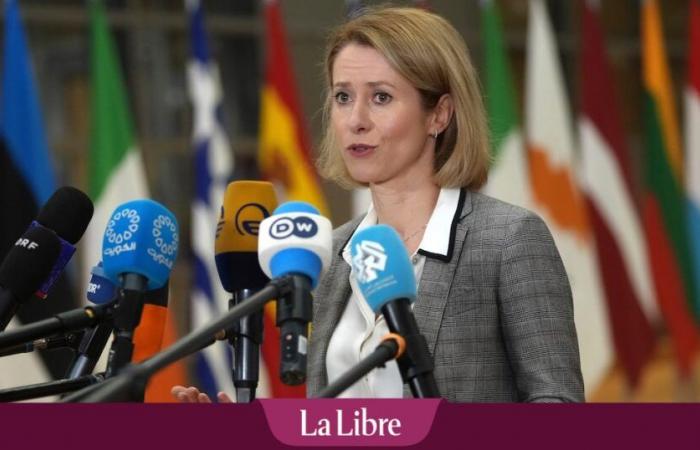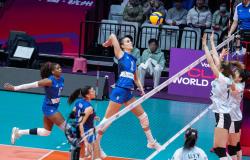
The Europeans are waiting to see who they are dealing with with the new Syrian authorities, now embodied by the radical Islamist movement Hayat Tahrir Al-Sham (HTC), before proceeding with a normalization of relations with Damascus. “We have to see what their actions will be in the coming weeks or months. We will see how their words translate into reality”commented the High Representative for EU Foreign Policy, Kaja Kallas, after the first meeting she chaired in this new role. “They can perhaps break away from al Qaeda, but they are nonetheless rigors”recalls a source close to the discussions.
The new head of European diplomacy, Kaja Kallas, has “the most difficult job at the most difficult time”
For the moment, for example, there is no question yet of lifting the European sanctions taken against Bashar al Assad’s Syria, nor of removing HTC from the list of terrorist organizations, where the Union placed the group in 2014, following the United Nations Security Council. There is no question, either, of starting a political dialogue at the highest level now. The European Union (EU) has nevertheless opened a channel of communication with the Syrian authorities. The charge d’affaires of the EU delegation in Syria, Michael Ohnmacht, traveled from Beirut, Lebanon, where he is based, to Damascus, to speak with the new Syrian power. “We must avoid making the same mistakes as in Libya and Afghanistan, leaving a vacuum. We must be present”Ms. Kallas insisted.
Conditions to respect
Mr. Ohnmacht’s visit aims in particular to send messages to HTC on the basic principles that the new power must respect for Europe to establish direct political relations with it. Among these: respect for the territorial integrity and sovereignty of Syria, by all its components – a message which is also addressed, implicitly, to Israel and Turkey. Inclusivity is also part of it: “The transition process must be led by Syrians, in a way that reflects the diversity of the country.”added Kaja Kallas. The rights of ethnic and religious minorities must be respected, as well as those of women. Furthermore, HTC must renounce extremism and terrorism.
Some, like Dutch Minister Veldkamp, believe that the withdrawal of Russian military bases – the Tartous naval base and the Khmeimim air base, installed during the era of Bashar al Assad, should also be among the conditions for normalization and the lifting of sanctions. Many foreign ministers believe that this could be part of European demands, confirms Kaja Kallas, known for her firm positions towards Moscow. The EU will raise this issue with the new Syrian leaders, says Kaja Kallas. The Estonian, who traveled to Amman, Jordan, this weekend, to discuss the new situation in Syria and its consequences, with the foreign ministers of the Arab countries of the region, Turkey and the US Secretary of State Blinken, assures that “several Arab countries [lui] also said they did not want Russian influence to continue” in Syria.





